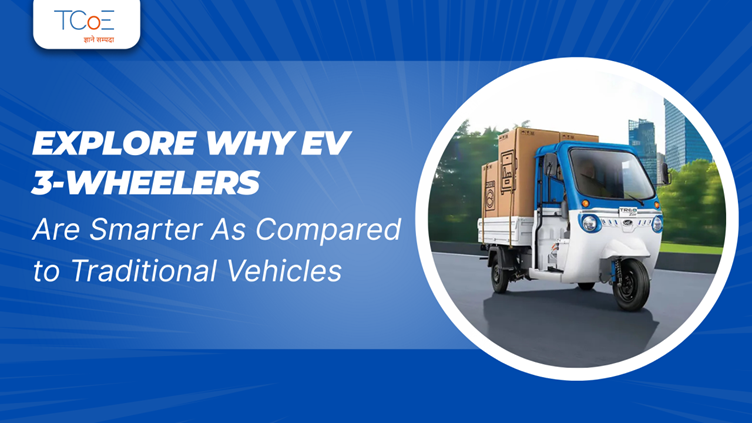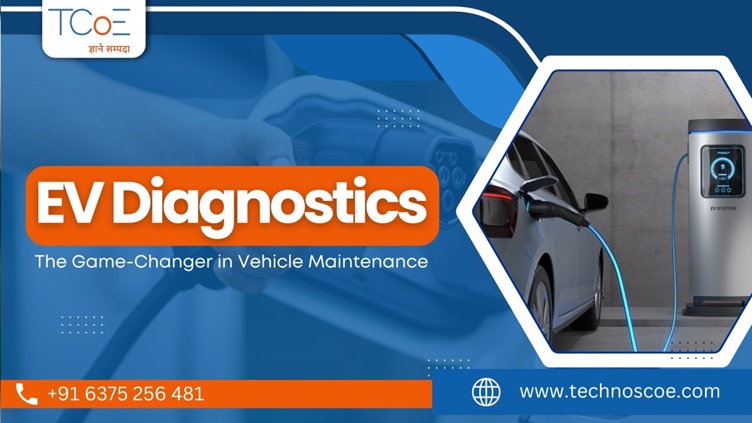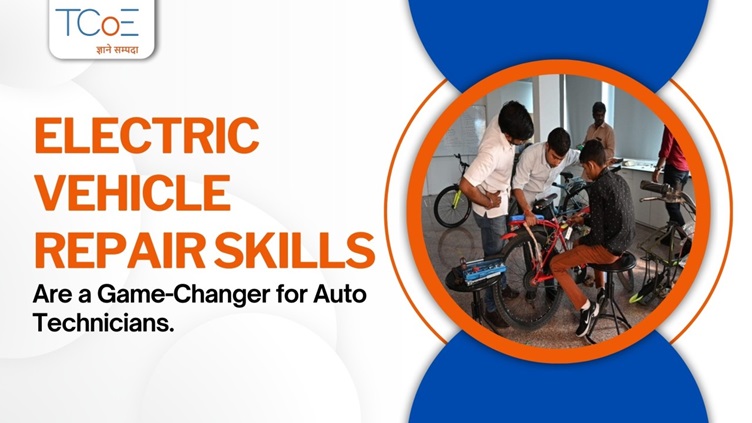Explore Why EV 3-Wheelers Are Smarter As Compared to Traditional Vehicles

Electric 3-wheelers (EV 3-wheelers) are rapidly gaining popularity, especially in India, where they’re becoming a common mode of transportation for both passengers and goods. Many people ask how EV 3-wheelers are different from traditional vehicles.
Auto rickshaws and small tempos have dominated the streets of India for many years. EV 3-wheelers, for both passengers and cargo, are showing real promise as a cleaner, more cost-effective alternative in recent years.
From cost and ease of use to air and noise pollution, let’s explore this article that involves key benefits of EV 3-wheelers over traditional vehicles. Read till the end!
1. Lower Maintenance Costs
Maintenance cost is the most important aspect that requires proper understanding. When it comes to EV 3-wheelers, they have lower maintenance costs compared to traditional vehicles.
How? Traditional petrol/diesel engines require maintenance like oil changes, engine tune-ups, and repairs to the exhaust system.
On the other hand, since EVs have fewer moving parts and a very simple motor that powers the vehicle. Your worries about engine oil, exhaust systems, or complicated gear mechanisms get reduced.
2. Reduced Environmental Impact
One of the most significant reasons behind shifting towards electric vehicles is environmental concerns. Traditional vehicles rely on petrol/diesel/CNG, which generate air pollution. In contrast, EV 3-wheelers run entirely on electricity, which emits no air pollutants. By choosing EVs, urban areas, where traffic congestion and pollution are major concerns, get a huge relief. EV 3-wheelers represent a significant step forward towards a more sustainable future.
3. Easier to Operate in Congested Areas
Traditional vehicles, especially in densely populated cities, face lots of issues of traffic congestion. On the other hand, small, lightweight 3-wheeled EVs can easily operate through narrow lanes and crowded streets. The reason is that their compact design is perfect and suitable for urban areas, making them practical and efficient for urban use.
4. Cost-Effective in the Long Run
The cost of an EV 3-wheeler may seem slightly higher compared to a traditional vehicle, but with various subsidy support schemes, both from central as well as state governments, as well as easy loans and tax breaks, it is overall a much more cost-effective solution.
5. Long-Term Investment for a Sustainable Future
One of the most important facts is that the world is moving towards sustainable energy sources, and EV 3-wheelers represent a long-term investment in our environment. They are developed to reduce dependency on fossil fuels and reduce the carbon footprint. As usage of EVs increases, their charging and maintenance infrastructure will grow, which will make it more convenient and practical to use them.
Conclusion
EV 3-wheelers are changing the way we think about urban transportation. With their lower maintenance costs, reduced environmental impact, ease of use in congested areas, and quiet operation, they offer a significant advantage over traditional vehicles.
If you're interested in exploring the different uses and development of EV 3-wheelers, TCoE has the perfect design course for you. With hands-on learning, expert guidance, high-quality tools and equipment, and experienced TCoE trainers, we cover everything you need to know. Join us to dive deeper into the world of EV 3-wheelers and take your learning to the next level!










